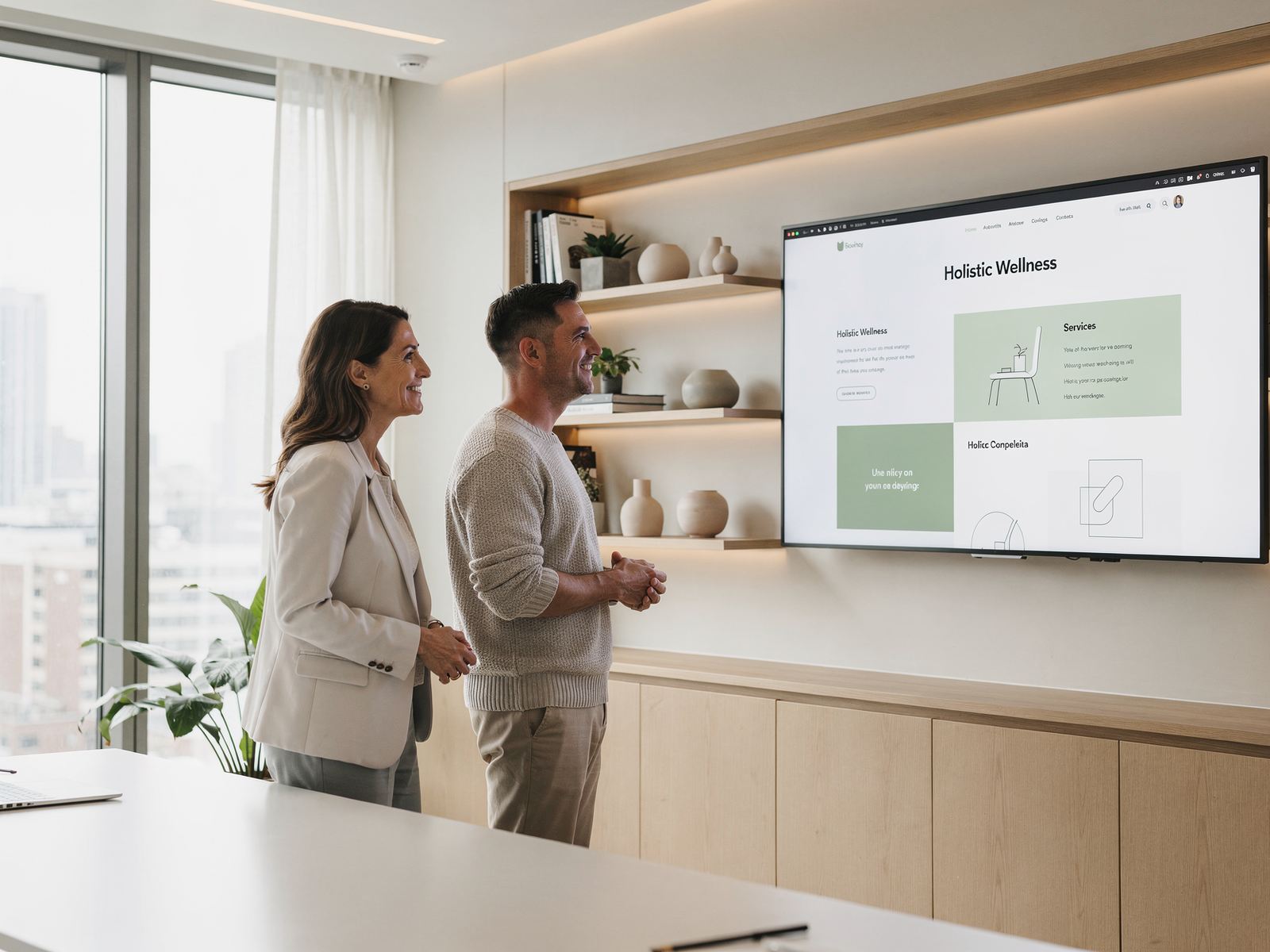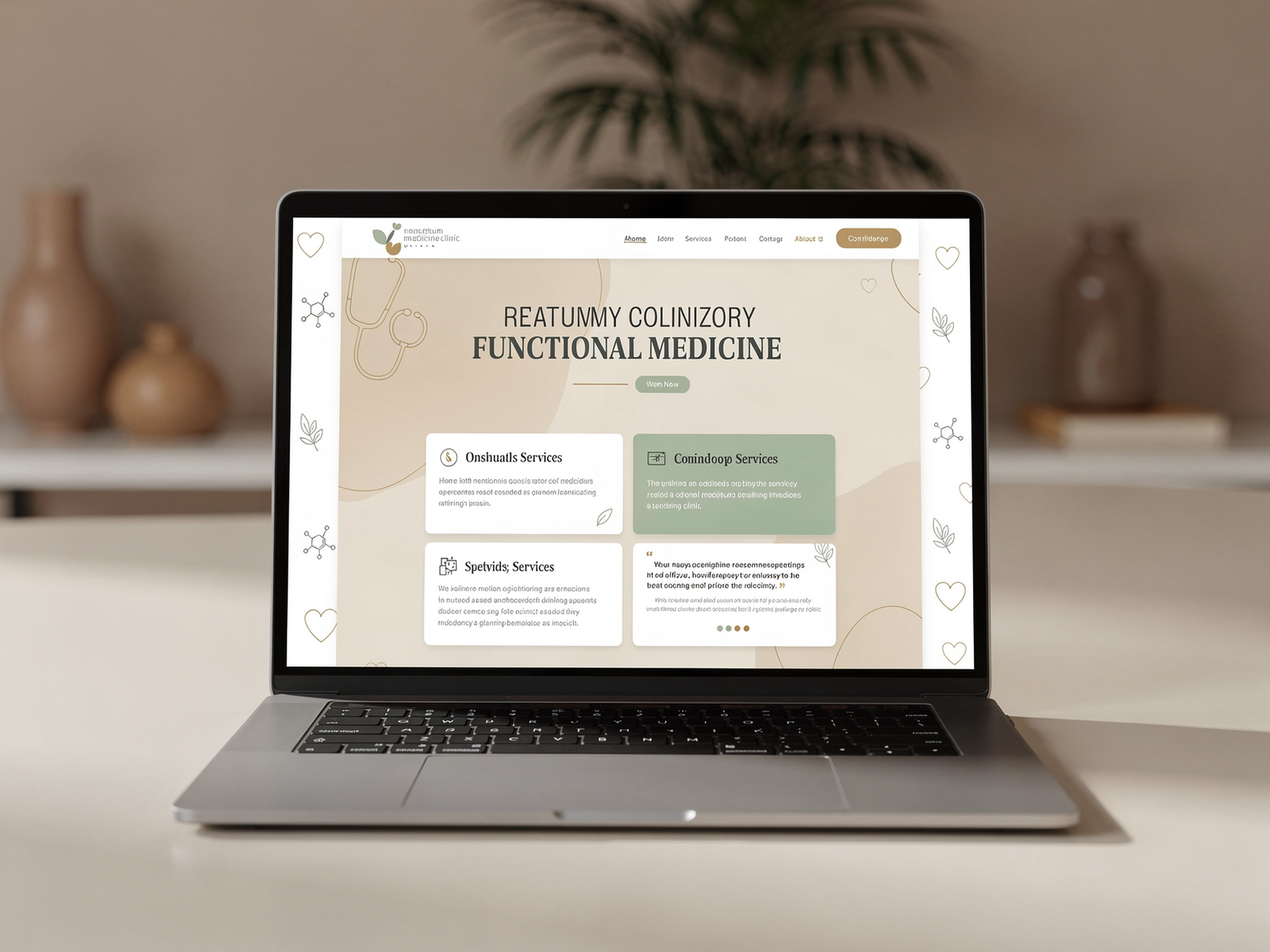How to Optimize Real Estate Website for SEO: Capture More Local Leads
Watch the video for a quick and easy SEO trick that our clients are reporting an extra 200-400 website views per month!
If you’re wondering how to optimize real estate website for SEO, you’re already ahead of most realtors. Too many agents rely only on their brokerage’s cookie-cutter sites, which don’t bring in local leads. The good news? With the right strategy, your website can dominate Google searches in your area, attract buyers and sellers, and position you as the go-to agent in your market.
How to Optimize Real Estate Website for SEO: The Foundation
Search engines are where buyers and sellers begin their journey. In fact, more than 90% of home searches start online. If your site doesn’t appear when someone types “homes for sale in [your city],” you’re missing out on the hottest leads.
To start building SEO authority:
Make sure your website loads quickly on desktop and mobile
Create location-specific pages (think “Homes for Sale in Scottsdale AZ”)
Add IDX integration so buyers can browse listings directly on your site
Write blog posts that answer real client questions
Your website should feel like a digital open house that never closes.
Focus on Local Keywords That Actually Rank
One of the biggest mistakes realtors make is trying to rank for broad, national terms like “real estate agent.” That’s nearly impossible. Instead, focus on local longtail keywords.
Example: Instead of “real estate,” target “buy a condo in downtown Dallas” or “best schools near Naples Florida homes.” These keywords connect you with motivated leads right in your service area.
Use tools like Google’s Keyword Planner or the recommendations we covered in Best Free Tools for Realtors to identify phrases people are already searching.
Build Local Landing Pages That Convert
If you want to rank higher, you need landing pages dedicated to each neighborhood, ZIP code, or community. Each page should include:
A catchy headline with your target keyword
IDX listings for that area
A short local market update
Lead capture forms like “Get a free home value report”
Imagine a seller in your town Googling “home value in Lakewood.” They find your Lakewood-specific page, read your insights, and fill out your form. That’s how SEO turns into closings. For more on this strategy, check out our article on Real Estate Landing Page Optimization.
Create Content That Builds Authority
Google rewards realtors who consistently publish helpful content. Your blog should be more than just listings…it should answer the questions your clients are typing into Google.
Content ideas include:
“How to Sell a House in [City] Fast”
“Best Neighborhoods for Families in [City]”
“Is Now a Good Time to Buy in [City]?”
By publishing posts like these, you become a trusted advisor. Plus, content clusters (we broke this down in Content Clusters for Realtors: A Smarter Blogging Strategy) help you build topical authority that Google loves.
Optimize Your Google Business Profile
Even the best website won’t work if your Google Business Profile is neglected. When someone searches “realtor near me,” your profile can land you in the coveted map pack.
Steps to optimize:
Add professional photos of yourself, listings, and neighborhoods
Collect reviews from past clients and respond to every one
Post updates weekly—market trends, open houses, tips
Ensure your name, address, and phone number are consistent everywhere online
Pair this with a strong website, and your phone will ring more often. For extra tips, see our post on How to Rank Higher on Google Maps.
Want More Clients Fast?
Steal This Website Rescue Kit to Get More Clients, More Calls, and More Sales on Autopilot

See How Many Closings You're Losing to Zillow!
Click Here to Use our Calculator to See How Many Clients Zillow is Taking From You Per Year!
Use On-Page SEO Best Practices
Every page on your website should follow SEO best practices. That means:
Title tags with your main keyword
Meta descriptions under 150 characters that entice clicks
Alt text for all images (great for Google and accessibility)
Internal links to related posts.
These little details may seem small, but together they make a big impact on your rankings.
Capture and Convert Local Leads
SEO isn’t just about traffic—it’s about converting visitors into leads. That means your site should include:
Instant home value tools to attract sellers
IDX search with filters buyers love
Downloadable guides (like a seller checklist) in exchange for email addresses
Chat tools or contact forms that make it easy to reach you
If your site has traffic but no leads, review our post on Real Estate Website Conversion Tips.
Backlinks and Social Proof Build Authority
Search engines trust websites that others link to. A great way to earn backlinks is by publishing unique market insights that local news outlets or bloggers want to reference.
You can also share your posts on social media to increase visibility. A strong Facebook strategy (as explained in 10 Ways a High-End Website Helps You Close More Listings) can drive both traffic and backlinks.
Real-World Realtor Example
Picture this: Sarah, a realtor in Phoenix, creates landing pages for five major neighborhoods. She writes weekly blogs answering common buyer and seller questions. She updates her Google Business Profile twice a week and shares content on Facebook.
Within six months, Sarah notices she’s showing up on page one for “buy a home in Arcadia Phoenix” and her site generates five new leads a month. That’s the power of real estate SEO done right.
Conclusion
Learning how to optimize real estate website for SEO isn’t optional anymore…it’s essential. With the right mix of local landing pages, content, keyword targeting, and lead capture, your website can become a 24/7 client magnet.
At Digital Dream Homes, we specialize in building luxury, SEO-ready websites that help realtors dominate their markets. Book your free consultation today and let us create a site that attracts local leads, builds authority, and drives closings.
Matt Pieczarka
Other Posts You Might Like…
- Free SEO Tracking Tools for Small Business That Actually Work
- How Long to Rank Small Business Website on Google? The Real Timeline
- Importance of Google Reviews for Small Business: Rank Faster, Earn Trust
- SEO Mistakes Small Business Owners Make: Fix These Fast
- SEO Blogging Tips For Small Business: Write Posts That Rank
- Backlinks for Small Business Websites: Why Backlinks Matter for Local Businesses
- On-Page SEO Checklist for Small Business Websites
- Google Business Profile Setup for Small Business: The Beginner’s Guide
- Local SEO for Small Businesses: Tips for Small Business Owners
- What is a Listicle and Why Your Business Needs One ASAP
Want a Free Website Audit?
Fill out your information below and we will send you a personal screen share video of tips on how to make your actual website better!
9 Functional Medicine Local SEO Wins That Fill Your Calendar
9 Functional Medicine Local SEO Wins That Fill Your Calendar Watch the video to learn the best SEO technique to get the most traffic to your website! Want More Clients Fast?
7 Functional Medicine SEO Company Checks That Bring More Patients
7 Functional Medicine SEO Company Checks That Bring More Patients Watch the video to learn how to use your website to get qualified leads and more patients! Works for every
7 Functional Medicine SEO Services That Bring More Patients
7 Functional Medicine SEO Services That Bring More Patients Watch the video to learn how to structure your website for the maximum conversions. Works for every industry! Wan
5 Functional Medicine Website Consulting Tweaks That Get More Patients
5 Functional Medicine Website Consulting Tweaks That Get More Patients Watch the video to learn how to structure your website for the maximum conversions. Works for every industry!
7 Functional Medicine Website Redesign Signs You’re Losing Patients
7 Functional Medicine Website Redesign Signs You’re Losing Patients Watch the video to learn how to structure your website for the maximum conversions. Works for every industry!
7 Functional Medicine Website Support Wins That Grow Your Practice
7 Functional Medicine Website Support Wins That Grow Your Practice Watch the video to learn the exact layout to maximize your lead conversions on your website! Works with any indus
7 Integrative Medicine Website Design Services That Win Patients
7 Integrative Medicine Website Design Services That Win Patients Watch the video to learn how to craft your homepage for maximum trust and boost conversions for more leads and sale
7 Holistic Doctor Website Design Secrets That Book Clients
7 Holistic Doctor Website Design Secrets That Book Clients Watch the video to learn the exact layout to boost leads and sales on your website! https://youtu.be/XaEbNPZxi0U?si=AZP_g
9 Functional Medicine Web Design Agency Benefits for Clinics
9 Functional Medicine Web Design Agency Benefits for Clinics Watch the video to learn how to craft the perfect homepage layout to boost trust and sales! https://youtu.be/XaEbNPZxi0









